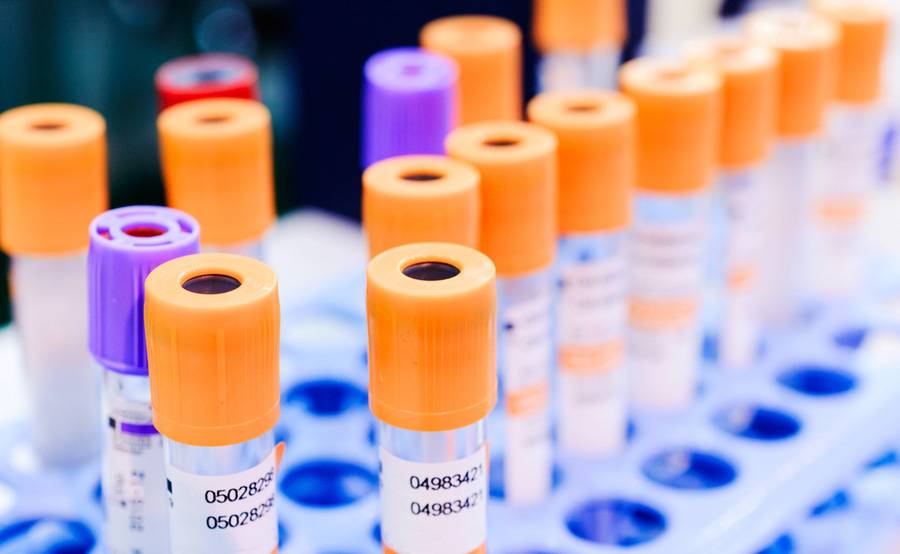Bio-Repository Services
Overview of services, processing and storage for bio-specimens

Overview of services, processing and storage for bio-specimens
The Scripps Health/Scripps Clinic Bio-Repository and Bio-Informatics Core provides a wide range of bio-repository services for researchers and scientists.
Facility overview
- Secure storage in CryoPlus Liquid Nitrogen and Thermo Scientific -80°C freezers
- All freezers are connected to backup generators in the event of a loss of electrical power
- Remote alarm monitoring
- Real-time reports on freezer temperatures
- Emergency response
- 2D bar coding on all bio-specimens
- Regulated access to all archived bio-specimens
- Inventory control utilizing FreezerWorks
Bio-specimen storage
We have the capacity to store and environmentally monitor across the entire spectrum of storage conditions (ambient, refrigerated, frozen and ultra-cold). All storage equipment is physically secured, monitored 24 hours a day and seven days a week through a third-party temperature data logger, and maintained under careful conditions to ensure optimum bio-specimen quality. We also maintain a contingency response plan in case of individual equipment failure or widespread disaster. Loss of power or functionality is mitigated by the Scripps Health auxiliary power and liquid nitrogen reserves.
Ultra-cold aliquot storage
Bio-specimen management freezers are in place to provide bio-specimens with ultra-low storage temperatures (-80°C). Each of these freezers (-80°C) can hold 33,000-40,000 bio-specimens. This storage option is ideal for aliquots of serum, plasma, urine, saliva, and DNA/RNA that have been cryopreserved in 1ml, 2ml or 5ml barcoded cryovials.
Nitrogen vapor aliquot storage
Liquid nitrogen storage tanks are in place for bio-specimens requiring storage at or below -150°C. Each of these storage tanks can hold approximately 5,000 bio-specimens. Nitrogen vapor ensures that temperatures are maintained below -150°C without the chance of nitrogen contamination. This specific storage solution accommodates barcoded cryovials with a volume of 2ml or less.
Bio-specimen processing
All bio-specimens are stored in accord with the International Society for Biological and Environmental Repositories (ISBER) Best Practices and specific protocol defined sample parameters. We also offer a wide range of dynamic processing services configurable to specific study requirements, including:
- Study design consulting
- Bio-specimen procurement (blood, tissue, urine, stool, saliva)
- Processing and allocation (whole blood, plasma, serum, MNCs, pellet and supernatant urine, stool, tissue)
- Centrifugation
- Automated DNA/RNA extraction
- Automated protein extraction
- Nucleic acid quality control
- Bio-specimen distribution
Nucleic acid and protein isolation
Isolation of nucleic acids from blood, saliva, solid tissue and other fluids is accomplished using the QIAGEN QIAcube. The QIAcube uses advanced technology to process QIAGEN spin columns, enabling seamless integration of automated, low-throughput sample prep into the laboratory workflow. No change of purification chemistry is required, assuring fast startup and immediate results. All steps in the purification procedure are fully automated, and up to 12 samples can be processed per run.
Nucleic acid quality control
We use the Agilent 4200 TapeStation system, which is currently considered the gold standard for DNA and RNA sample quality control and is critical for testing the integrity of nucleic acid samples. Conventional spectrophotometric measurements of nucleic acids only help with quantification, and thus do not give any estimate of the actual quality of the nucleic acid. This instrument will be utilized to quality-control our bio-specimens that are processed downstream for protein and nucleic acid preparations.
Agilent 4200 TapeStation features and capabilities
- The ability to run between one and 96 samples, thus no samples and reagents are wasted
- Results are obtained in as little as 1-2 minutes per sample
- Minimal manual intervention and excellent reproducibility for sizing, concentration and integrity assessment of DNA and RNA
- Requires only 1-2µL of DNA/RNA samples, so there is no waste of precious clinical or research samples
- Generates both genomic DNA and RNA Integrity Numbers (DIN and RIN), which are research and industry standards for nucleic acid